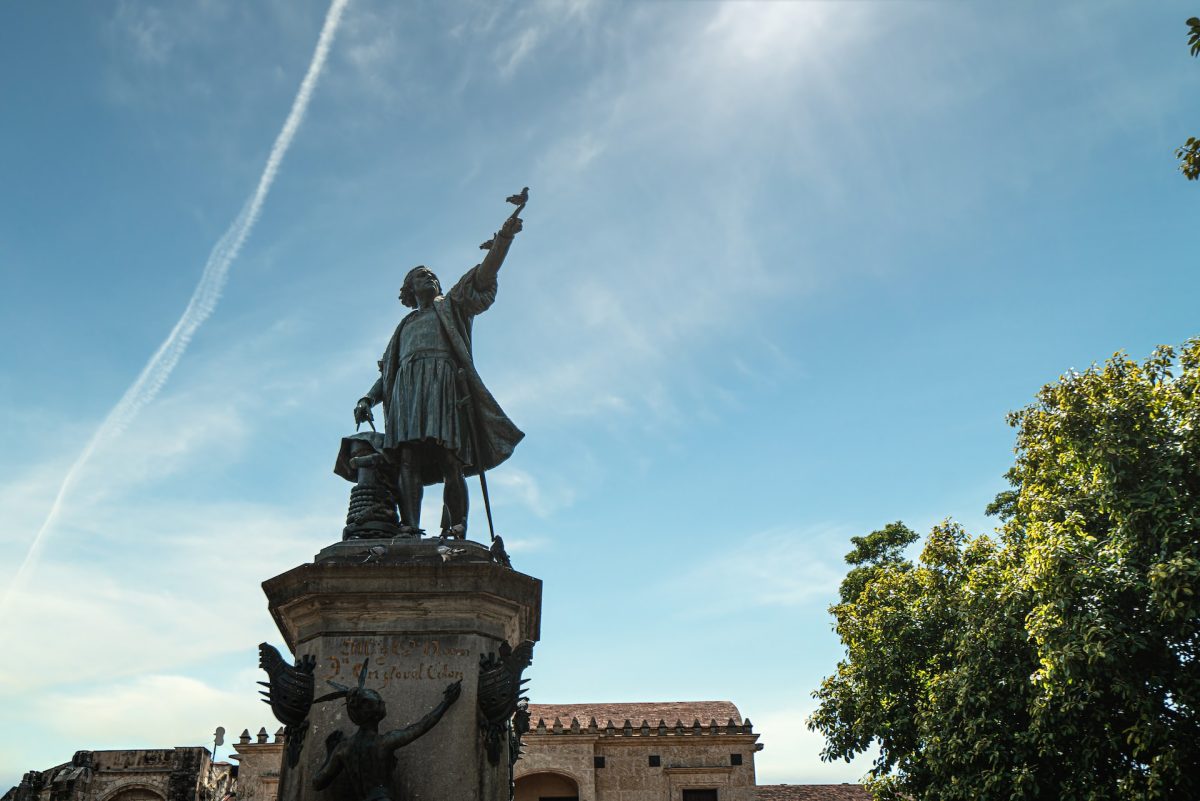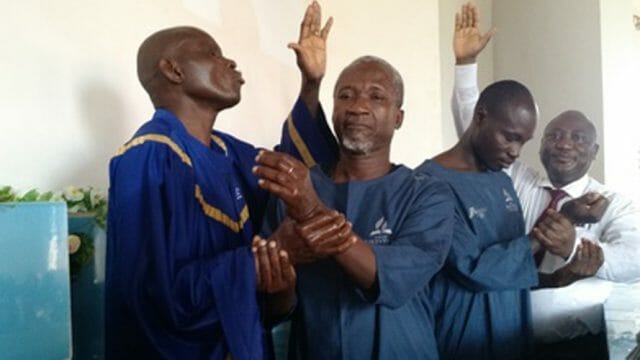A prophetic repudiation of colonialism

I remember sitting with my grandfather and hearing stories of the colonization of Korea. My grandfather was forced to learn Japanese, had his name changed, and saw every element of Korean culture almost eradicated. As he told me instances of how he was treated as a second-class citizen, I could sense the pain in him all these years later.
The effects of colonization are still evident in the psyche of my grandparents’ generation, and the emotions are strong, as the ravages of the collective rape of a nation under colonialism remain.
Though I was born in the United States and I’m one generation removed from the traumas of colonization, I’m still challenged by other aspects. I remember sitting in a theological symposium during which a Korean Adventist scholar was sharing how his mother wanted him to study prophecy when he was a teenager. After his study he went to his mother and asked, “Mom, where is Korea?” Where is the rest of the world, for that matter? The “developing world” and the “Global South” seems completely left out of the narrative. This hermeneutic seems conveniently Eurocentric.
When the powers of Western Europe colonized the rest of the world, they brought with them Christianity. Is it possible that they also brought with them a Eurocentric interpretation of Scripture? For instance, the traditional prophetic interpretation of Daniel 2, 7, and 8 includes Greece, Rome, and the nations of Western Europe; however, the rest of the world is completely left out except for Babylon and Medo-Persia. Could it be that this is the hermeneutical presupposition of a Eurocentric mindset of a bygone era? Is our interpretation of the book of Daniel just a vestige of colonialism?
The Hermeneutic of a Colonized Man
Before we attempt to answer this question, a Bible-believing Christian cannot minimize the significance of the book of Daniel in its relevance to the issue of colonialism. Daniel himself was a victim of colonization. He was taken captive and had his name changed; perhaps he was castrated, and his culture systematically eradicated. Furthermore, Jesus, who was living under the colonial yoke of the Roman Empire, gives His endorsement of the book of Daniel in Matthew 24:15 when He exhorts us to read and study the book in the last days. It cannot be overstated that both Jesus and Daniel understood what it meant to be colonized. It was not just a historical footnote in their experience; it was part of their existential reality.
I contend that the book of Daniel is not an endorsement of colonization; it is a repudiation of it.
First, there is no denying Daniel’s interpretative framework for the powers described. In Daniel 2:38 Daniel, the victim of colonization, interprets the vision of the metal man by stating the head of gold represented Babylon. Daniel 2, 7, and 8 are built on the same framework. Daniel 2 lays the foundation. Daniel 7 builds on the same theme with more details, and Daniel 8 repeats and enlarges. Therefore, the starting point for the powerful nations that follow all of the visions of Daniel 2, 7, and 8 is Babylon.
Given that Daniel, who was subject to colonization, has interpreted the visions of Daniel 2, 7, and 8 as beginning with Babylon, followed by Medo-Persia (Dan. 6; 8:20), and then followed by Greece (Dan. 8:21), he establishes that the framework is following the historical record of geopolitical powers that subjugate and colonize other nations. This is far from an endorsement; it is a description of historical facts that the book of Daniel predicted.
Going to the New Testament, we have, in Luke 2:1, the record of the power that follows Greece: Caesar Augustus sends out a decree that “all the world should be taxed” (KJV). The one who taxes the world rules the world. The event that determined the birthplace of Jesus was painful evidence that He was born into a nation that had been colonized by the Roman Empire. Daniel describes this power as one that will “crush all the others” (Dan. 2:40).
The hermeneutic of a colonized man, Daniel, is a stunning portrayal of the colonial powers of Babylon, Medo-Persia, Greece, and Rome. However, it does not end there. Daniel 7 describes the breakup of the Roman Empire into 10 kingdoms of Western Europe. In other words, colonialism would continue. However, it would not be just one power that colonizes; it would be multiple powers from Western Europe.
Why is the official language of Chile, Colombia, Panama, and Peru Spanish? Why is the official language of Brazil and Mozambique Portuguese? Why is the official language of Gabon, Guadeloupe, Mali, and Martinique French? And why is the official language of Ghana, Gambia, Namibia, and Zambia English? The answer is simple—the colonization of the world by Western Europe.
A Miracle of Grace
The prophecies in the book of Daniel describe with undeniable accuracy the colonization of the world beginning with Babylon and ending with Western European colonization. This is not a Eurocentric hermeneutic; this is the hermeneutic of a man that is experiencing the ravages of colonization in real time. However, the narrative to this point in Daniel’s prophecy is descriptive, not prescriptive.
How do we know? Because the next kingdom destroys the entire human edifice of colonization. “And in the days of these kings the God of heaven will set up a kingdom which shall never be destroyed, and the kingdom shall not be left to other people; it shall break in pieces and consume all these kingdoms, and it shall stand forever” (Dan. 2:44).
The kingdom of God forever ends the reign of colonization. This is the hermeneutic of a colonized man.
In the new kingdom the leaves from the tree of life are for the “healing of the nations” (Rev. 22:2). In other words, there is an acknowledgment by the leader of the new kingdom that there are national wounds that need to be healed. The tree of life is not only a source of individual healing for my soul but also a place of collective healing for every nation, kindred, tribe, tongue, and people. In the new kingdom the Zimbabweans can worship with the British, the Brazilians with the Portuguese, the Koreans with the Japanese, and the Jews with the Germans, because God is the healer of our collective national traumas.
Again, the book of Daniel is not an endorsement of colonization; it is a repudiation of it. However, Daniel’s repudiation of the philosophy of colonization led him down a unique path. In Daniel 4 Daniel is tasked with interpreting a dream for his oppressor. Nebuchadnezzar had been the one that separated Daniel from his parents when he was a teenager, and marched him 1,000 miles across the desert in chains to Babylon. Perhaps his parents were slaughtered in front of him in cold-blooded genocide.
Daniel was the victim of physical, psychological, and emotional abuse. His Jewish culture was replaced by Babylonian culture, and his identity was systematically deconstructed. His city lay in ruins, and his beloved temple was destroyed. Nebuchadnezzar was the quintessential colonizer and the epitome of a subjugator and tyrant.
There is no doubt that Daniel cared about his people. He centered his life on them; he prayed for the restoration of Jerusalem three times a day. Daniel prayed to God in sackcloth and ashes, pleading that his people might be restored and freed from captivity (Dan. 9). Daniel fainted and couldn’t eat because of the mysterious vision showing the future (Dan. 8:27). The effects of colonization were a deep part of his emotional psyche and experience. I think it safe to say that Daniel hated colonization. Yet did he hate the subjugator of his people? How did he relate to his oppressor?
In Daniel 4 Nebuchadnezzar had another dream. It’s a dream that foretold his demise. If the king did not repent, he would lose his mind and become a beast for seven years. Justice. Vindication. Retribution. He deserved it. Finally, the king would get what was coming to him.
The spirit of Daniel is mind-boggling; Daniel, after interpreting a dream of warning to the king, appealed for his soul (Dan. 4:27). It is clear that Daniel cared deeply about the salvation of his oppressor. How is this even possible? How is it possible that Daniel, who repudiates colonialism, can love the very person that was solely responsible for the rape of his nation? It’s a miracle of grace. It’s evidence that we don’t have to wait until the new earth to receive the healing from the traumas of colonization that we so desperately need. We can receive that healing now. The same God that healed the heart of Daniel can heal my heart today. God is the great healer of hearts. God’s healing enables us to transcend the bitterness of nationalistic grievances and translate it to the grace-filled work of soul saving. In his book there is only one chapter that is not written by Daniel. It is written by his colonizer (Dan. 4). Ellen White implies that Nebuchadnezzar will be in heaven, because he was “thoroughly converted.”* God’s amazing grace. This is the hermeneutic of a colonized man.
* Ellen G. White, in Review and Herald, Jan. 11, 1906.








